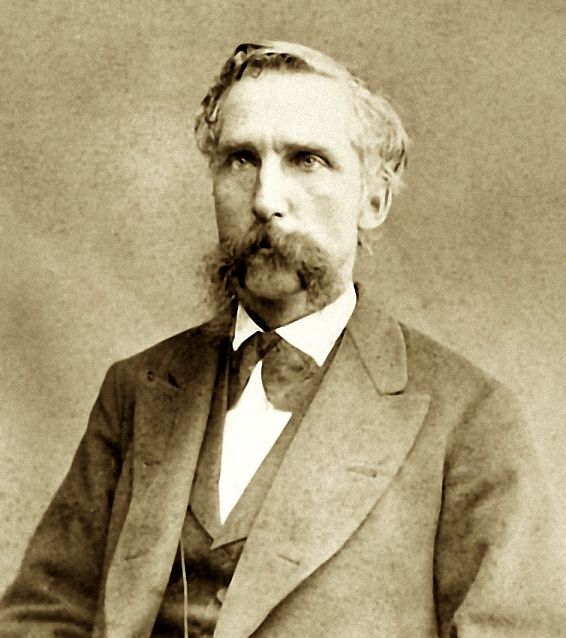You are viewing the article Joshua Chamberlain at Lassho.edu.vn you can quickly access the necessary information in the table of contents of the article below.

(1828-1914)
Synopsis
Joshua Chamberlain was born in 1828 in Brewer, Maine. He is best known for the courage he showed as colonel of the 20th Maine regiment that fought heroically in the Battle of Gettysburg in 1863. Chamberlain also accepted the Confederacy’s surrender of arms at Appomattox at the war’s end. Less well known is the fact that, after the war, he served four terms as governor of his home state and also as president of his alma mater, Bowdoin College. Chamberlain died in 1914 at the age of 85.
Early Life and Education
Joshua Chamberlain was born on September 8, 1828, in Brewer, Maine. His mother instilled in him religious devotion (he grew up in the Congregational Church), while his father passed on a deep interest in the military. As a child, Joshua Chamberlain was shy, and he stammered. (He never fully overcame the stammer, and as an adult, he spoke with unusual pacing.) As a young man, Chamberlain worked in a brickyard and in the timber industry before taking a teaching job in 1846. A studious young man, however, he set his sights on college, and to prepare, he studied Greek, Latin, and rhetoric.
Chamberlain was accepted to Bowdoin College (Brunswick, Maine) in 1848 and graduated in 1852. He then spent three years at the Bangor Theological Seminary. But after completing his training there, he took a teaching job at Bowdoin rather than work as a minister. On December 7, 1855, he married Frances “Fanny” Adams, to whom he had been engaged for several years. Joshua and Fannie had five children, two of whom survived to adulthood.
The Civil War
Chamberlain was teaching at Bowdoin during the years leading up to the Civil War. He was distressed about the secession of Southern states and the outbreak of war in 1861, and over the objections of his wife and his colleagues at Bowdoin, he eventually contacted Maine’s governor, Israel Washburn Jr. “I have always been interested in military matters,” he wrote, “and what I do not know in that line I am willing to learn.”
On August 8, 1862, Chamberlain was appointed lieutenant colonel, second-in-command of the 20th Maine Volunteer Infantry Regiment.
Gettysburg and Appomattox
The 20th Maine was present at several significant battles but is best remembered for its key role in the Battle of Gettysburg. Joshua Chamberlain was by that time a colonel and in command of the regiment. On July 2, the second day of fighting there, he and his troops came face to face with Confederate soldiers at Little Round Top, and after harsh fighting, Chamberlain led a bayonet charge and successfully secured their part of the hill for the Union. (One story—debated—holds that the men of the 20th Maine charged with bayonets because they ran out of ammunition.) Thirty years later, Joshua Chamberlain was awarded the Medal of Honor for “conspicuous gallantry” in the battle.
Chamberlain is also remembered for the role he played at Appomattox. By the end of the war, he had risen to the rank of brigadier general, and Ulysses S. Grant tapped him to accept the weapons surrendered by the defeated Confederate troops. Chamberlain ordered his troops to show respect for the Confederate soldiers by standing at attention when they passed.
After the War
After the war, Chamberlain returned to Maine and was elected to four terms as Maine’s governor, a post he held until 1870. During his tenure, he encouraged the state to ratify the 14th Amendment (which made all freedmen and women citizens of the United States). He also played a key role in the first years of the Maine College of Agriculture and the Mechanic Arts, which later became the University of Maine in Orono. Chamberlain was a Republican, but was not a party insider.
Following his governorship, Chamberlain served as president of Bowdoin College and during his tenure made some controversial changes. He began by adding science and engineering courses to the classical curriculum, but the school reverted to its original program one year later. In addition to trying to change what was taught at the school, Chamberlain also tried to modify student behavior by having students participate in mandatory, in-uniform military drills. Students eventually rebelled, and the college’s Board of Governors abandoned the drills.
Later Life
Chamberlain left his post at Bowdoin in 1883 and moved to Portland, Maine, where he served as surveyor of the port and began investing in Florida real estate. Chamberlain also began writing about his Civil War experiences, including the posthumously published memoir of Appomattox The Passing of the Armies. His wife, Fanny, died in 1905; Joshua Chamberlain died on February 24, 1914, at the age of 85.
QUICK FACTS
- Name: Joshua Chamberlain
- Birth Year: 1828
- Birth date: September 8, 1828
- Birth State: Maine
- Birth City: Brewer
- Birth Country: United States
- Gender: Male
- Best Known For: Joshua Chamberlain fought heroically at the Battle of Gettysburg in the American Civil War, served four terms as governor of Maine and was appointed president of Bowdoin College.
- Industries
- War and Militaries
- Astrological Sign: Virgo
- Schools
- Bowdoin College
- Death Year: 1914
- Death date: February 24, 1914
- Death State: Maine
- Death City: Portland
- Death Country: United States
Fact Check
We strive for accuracy and fairness.If you see something that doesn’t look right,contact us!
CITATION INFORMATION
- Article Title: Joshua Chamberlain Biography
- Author: Biography.com Editors
- Website Name: The Biography.com website
- Url: https://www.biography.com/military-figures/joshua-chamberlain
- Access Date:
- Publisher: A&E; Television Networks
- Last Updated: June 16, 2019
- Original Published Date: September 8, 2015
Thank you for reading this post Joshua Chamberlain at Lassho.edu.vn You can comment, see more related articles below and hope to help you with interesting information.
Related Search: